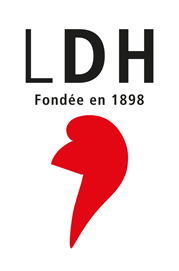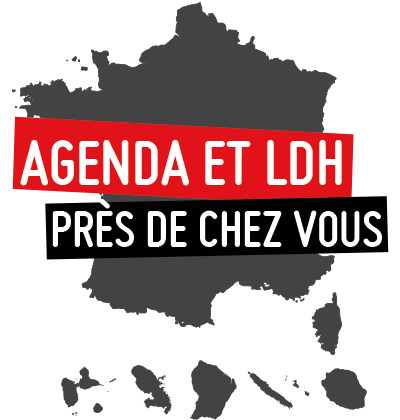The Covid-19 pandemic and public health crisis is presenting grave challenges for health care systems across Europe. As European countries work to address the pandemic, protect their populations, and meet the increased demand on health care workers and health care facilities it is vital that they adopt measures to safeguard the health, human dignity, physical and mental integrity, and reproductive autonomy of women and girls in the region.
In many countries the lack of government measures to guarantee individuals’ safe and timely access to essential sexual and reproductive health services, goods, and information during the pandemic is of particular concern. Women and girls1 are facing significant restrictions in safely accessing essential sexual and reproductive health services, particularly timely abortion care, post abortion care, and emergency contraception. Such restrictions disproportionately impact individuals belonging to marginalized groups, including women living in poverty, women with disabilities, Roma women, undocumented migrant women, adolescents, and women at risk or who are survivors of domestic and sexual violence. These restrictions also create unnecessary risks of exposure to Covid-19 for women and girls and their families as well as for health care providers.
Particularly grave barriers are arising for women and girls living in European countries where abortion care is illegal or severely restricted, and where as a result they must travel to other countries to access legal care or must obtain abortion medication from outside their own jurisdiction. These issues can also arise in those European countries where individuals are forced to go through burdensome or harmful administrative processes to access abortion care or where they may have difficulty finding doctors in their country willing to provide care.
We applaud those governments that have moved swiftly to safeguard access to essential time-sensitive sexual and reproductive health care during this time, in particular through ensuring access to telehealth and early medical abortion from home. We call on all other European governments to follow suit and to follow the guidance of medical and public health experts.
We call on the six European countries where abortion is illegal or severely restricted to urgently reform these laws, which place women’s health and lives at risk.2 Limitations on travel and transport now compound the impact of these highly restrictive laws. Individuals in these countries may no longer be able to travel abroad or to obtain medication for abortion sent by post from medical providers in other countries. As a result, they face heightened risks to their health and wellbeing.
We call on those countries where abortion is legal but where clinical services are unavailable or difficult to access due to a range of barriers, including medically unnecessary requirements that oblige individuals to take multiple or unneeded trips to health care facilities or undergo mandatory hospitalization, to urgently eradicate those barriers and ensure access to services. Urgent steps should also be taken to ensure that refusals of care because of private beliefs by doctors do not jeopardize timely access to legal abortion care.
In accordance with human rights obligations3 and the recommendations of medical experts4 the following measures should be adopted, and at a minimum remain in place for the duration of the Covid-19 pandemic:
- Ensure that abortion is treated as essential and time-sensitive health care and guarantee access to care in a timely manner.
- Authorize and make available in a timely manner telehealth consultations for anyone who is seeking abortion care or information. Specific measures should be adopted to ensure that telehealth consultations are free or low cost and easily accessible for marginalized groups.
- Guarantee timely access to early medical abortion throughout each jurisdiction and allow doctors to prescribe the necessary medication via telehealth consultation.
- Allow individuals to take all abortion medication at home. Requirements in some European countries that one pill must be taken in the physical presence of a doctor or in a health care facility should be removed.
- Remove mandatory waiting periods prior to abortion as well as mandatory counselling requirements or ensure counselling can be conducted through telehealth consultation.
- Authorize primary care doctors and midwives to provide early medical abortion.
- Adopt health system safeguards to guarantee access to care in cases where early medical abortion is not possible or is contraindicated, for individuals who need abortion care later in pregnancy or post-abortion care, or who may need to visit a health care facility for other reasons. Travel in such cases should be deemed essential and permitted even where governments have otherwise restricted free movement.
- Where a doctor’s authorization is required, this should be limited to one doctor. Requirements for multiple doctors’ approval of an abortion should be removed.
- Guarantee timely access to prenatal testing and psychosocial support where requested.
- Guarantee an adequate number of providers willing and able to provide abortion care throughout the country and widely publicize information on how women can identify health care professionals willing and available to provide abortion care. Urgently ensure that refusals of care by doctors do not jeopardize access to abortion care in a time of crisis.
- Widely disseminate information on those changes to SRHR policies and health care services that are being made in the context of Covid-19 responses.
- Ensure access to contraception including emergency contraception, including through authorizing telehealth consultations and provision of emergency contraception over the counter in pharmacies without a prescription.
Finally, we call on all policy makers across the European region to reject proposals that purport to restrict access to safe abortion care during the Covid-19 pandemic. These disingenuous proposals simply serve to exacerbate the current public health crisis and have negative effects on the health, lives, and wellbeing of women and girls.
8 April 2020
Abortion Rights Campaign, Ireland ; AIDOS, Associazione italiana donne per lo sviluppo, Italy ; Albanian Center for Population and Development ; Amnesty International ; Amrita Association, Hungary ; ASPEKT, Slovakia ; Association des Femmes de l’Europe Meridionale ; Association européenne pour la défense des droits de l’Homme (AEDH) ; Association for Human Rights and Civic Participation PaRiter, Croatia ; Association for promotion of women’s action Tiiiit! Inc., North Macedonia ; Association Mnémosyne, France ; Association of Women of Southern Europe (AFEM) ; Associazione Luca Coscioni, Italy ; ASTRA Network ; Austrian Family Planning Association ; Bibija Roma Women Center, Serbia ; British Pregnancy Advisory Service ; Bureau Clara Wichmann, Foundation for strategic litigation for gender equality, Netherlands ; C.G.I.L. Confederazione Italiana del Lavoro, Italy ; Center for Curricular Development and Gender Studies: FILIA , Romania ; Center for Reproductive Rights ; CESI – Center for Education, Counselling and Research, Croatia ; Citizen, democracy and Accountability, Slovakia ; Clio. Femmes, Genre, Histoire, France ; Coalition to Repeal the 8th Amendment, Ireland ; Concord Research Center for Integration of International Law in Israel ; Cyprus Family Planning Association ; Danish Family Planning Association ; Deutsche Stiftung Weltbevölkerung (DSW) ; Doctors for Choice Ireland ; Doctors for Choice Malta ; Doctors for Choice UK ; Encore féministes ; Equipop ; Estonian Sexual Health Association ; European Humanist Federation ; European Parliamentary Forum for Sexual & Reproductive Rights ; European Roma Rights Centre ; European Society of Contraception and Reproductive Health (ESC) ; European Women Lawyers Association ; Family Planning Association of Moldova ; Federación Planificación Familiar Estatal, Spain ; Fédération des Centres Pluralistes de Planning Familial, Belgium ; Federation for Women and Family Planning, Poland ; Fédération laïque des centres de planning familial – FLCPF, Belgium ; Femmes solidaires, France ; Forum femmes méditerranée ; Freedom of Choice / Možnosť voľby, Slovakia ; Fundación para la Convivencia Aspacia, Spain ; Garance, Belgium ; German Women Lawyers’ Association ; Helia Association, Spain ; HERA – Health education and research association, North Macedonia ; Human Rights Watch ; Humanists UK ; International Commission of Jurists ; International Federation for Professionals in Abortion and Contraception (FIAPAC) ; International Planned Parenthood Federation – European Network ; IPAS ; Irish Family Planning Association ; Kosovar Gender Studies Center ; L.A.I.G.A, Italy ; L’ Associació de Drets Sexuals i Reproductius, Spain ; La Ligue des droits de l’Homme, France ; Latvian Association for Family Planning and Sexual Health ; Le Planning Familial, France ; London-Irish Abortion Rights Campaign ; Médecins du monde-France ; Nane, Hungary ; National platform for reproductive justice, Croatia ; National Women’s Council of Ireland ; Patent Association, Hungary ; Planning Familial Luxembourg ; Platform for International Cooperation on Undocumented Migrants (PICUM) ; pro familia Bundesverband, Germany ; Rape Crisis Network Ireland ; Regards de Femmes, France ; Rutgers, Netherlands ; Santé Sexuelle Suisse, Switzerland ; Sarajevo Open Centre, Bosnia and Herzegovina ; Šeimos planavimo ir seksualinės sveikatos asociacija / Family Planning and Sexual Health Association, Lithuania ; Sensoa, Belgium ; Serbian Association for Sexual and Reproductive Health and Rights ; Sex og Politikk, Norway ; Society Without Violence, Armenia ; SOS Rijeka – Center for Nonviolence and Human Rights, Croatia ; Swedish Association for Sexuality Education ; Tajik Family Planning Association ; Union des Familles Laïques – UFAL, France ; Union Women Center, Georgia ; Väestöliitto – The Family Federation of Finland ; Vita di donna, Italy ; Voice for Choice – L-għażla tagħha, Malta ; Wales Assembly of Women ; WAVE Network – Women Against Violence Europe ; Women Center « Light Steps », Albania ; Women on Waves, Netherlands ; Women on Web, Netherlands ; Women’s Rights Foundation, Malta ; Women’s circles, Slovakia ; Women’s Resource Center Armenia ; YouAct – European Youth Network on Sexual and Reproductive Rights ; Young Feminist Europe


